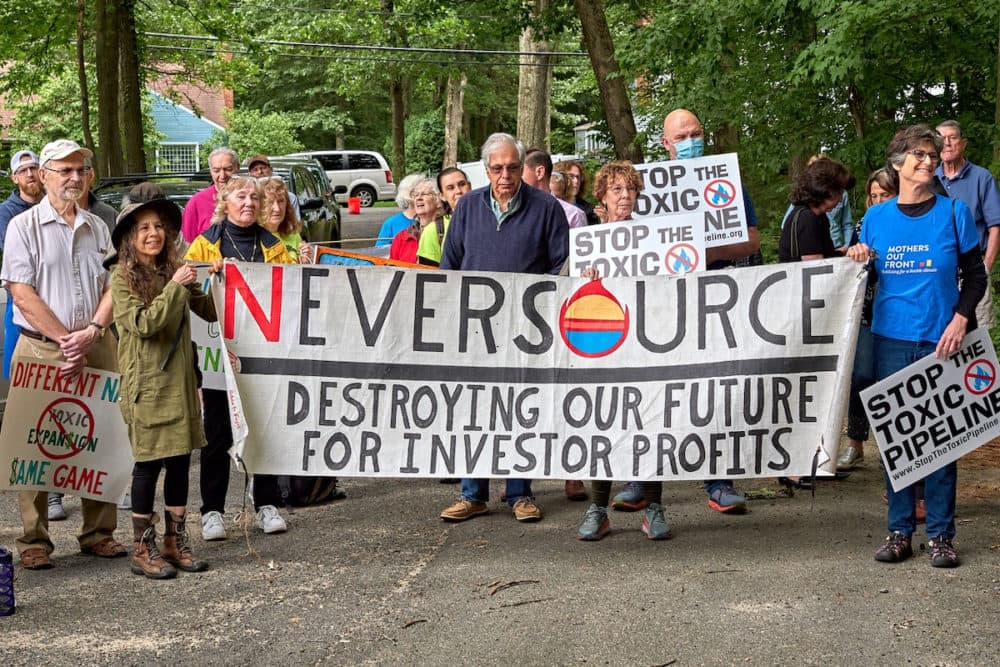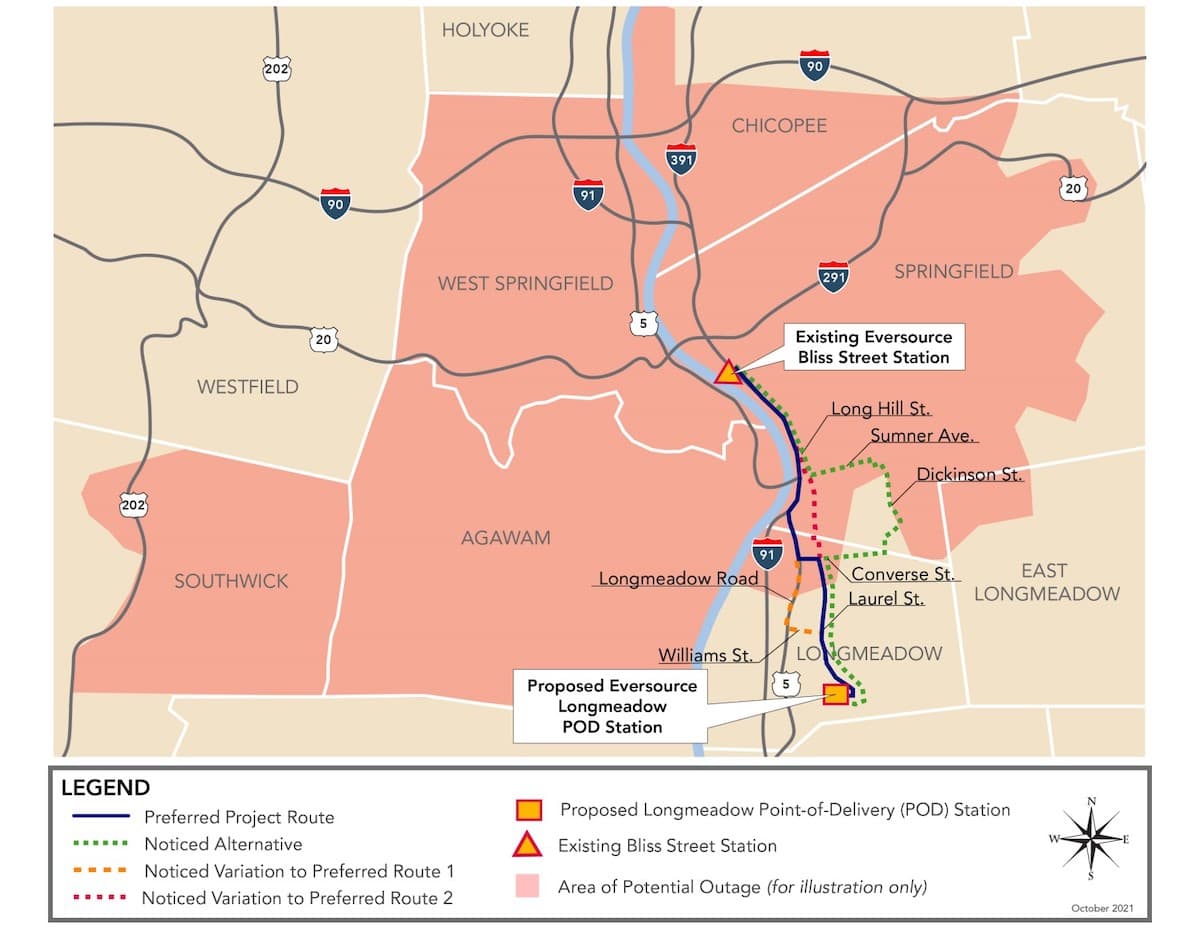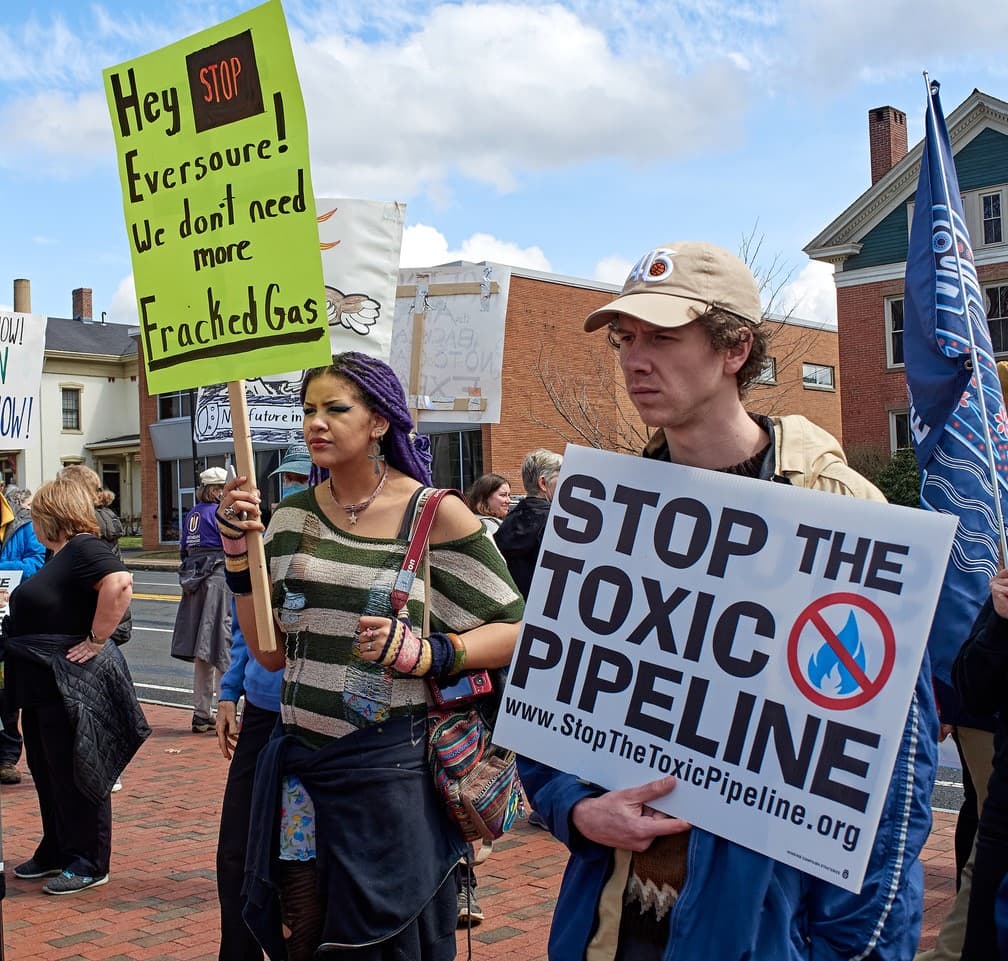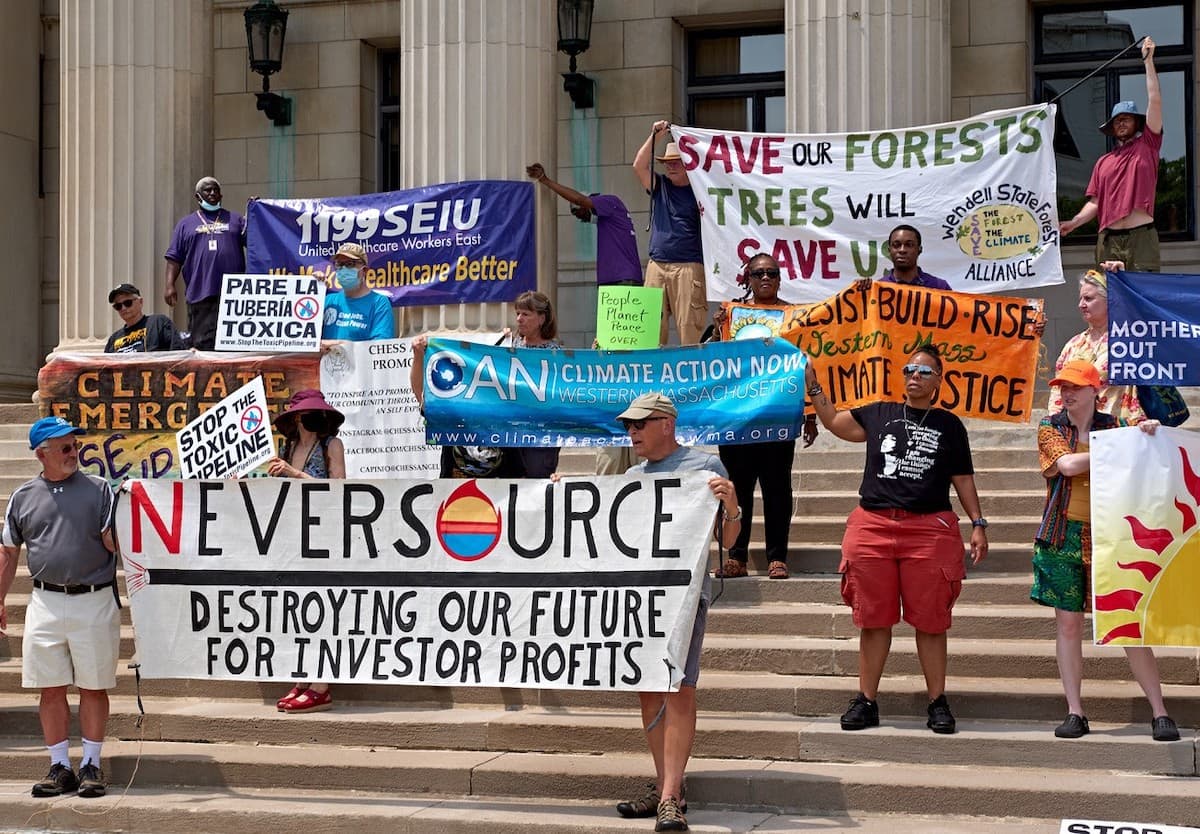Advertisement
Residents rail against proposed gas pipeline in Springfield at state energy siting board meeting

For several hours Wednesday night, state officials heard one message again and again from members of the public: Do not allow the utility Eversource to build a new natural gas pipeline between Springfield and Longmeadow.
Citing concerns about climate change, public safety and environmental justice, residents testified virtually in front of the Energy Facilities Siting Board, the state body that approves large energy projects. Not a single person spoke in favor of Eversource’s proposal.
“We are in a battle to save our environment and planet. We should be transitioning to renewable energy, not adding greenhouse gasses and contributing to climate change,” said Gary Levine of the Longmeadow Pipeline Awareness Group.
“Even Eversource admits that this pipeline is redundant,” said Longmeadow resident Deborah Sirulnik. “Proposing a backup pipeline at this time is nothing short of unconscionable.”
Officially called the Western Massachusetts Gas Reliability Project, the $65 million proposal from Eversource consists of three parts:
- A new 5.3 mile underground gas pipeline
- A new above-ground “point of delivery” or metering station in Longmeadow, where gas will be siphoned off from the larger regional pipeline, odorized and pushed into the new pipeline
- Upgrades to an existing regulator station in Springfield, which reduces the pressure of gas so it can move into the smaller pipelines that go to customers.
The purpose of the project is to bolster energy reliability in the region, Eversource project manager Richard Salvarezza explained at the meeting. The greater Springfield area is currently served by one 70-year-old pipeline, and should something go wrong, he said 58,000 homes and businesses could be without gas for weeks or even months.

To help explain the rationale for the project, Salvarezza put up a slide showing that if the state approves the project, each of the two pipelines would operate at 50% capacity. That way, if one line got damaged, the other could still serve all customers in the area.
“This project addresses an unacceptable reliability risk for our customers in the greater Springfield area,” Salvarezza said. “We are not trying to expand. We are trying to strengthen the system that is already there.”
But while Eversource frames redundancy as a strength, those in the public say it is a waste — and an unjust and dangerous one at that.
“None of us would build two houses because one may burn down or be hit by a tornado in the future. Nor would we have two cars because one may be in a collision,” said Richard Kanoff, an attorney representing the town of Longmeadow. “And accordingly, in this case, we do not need two pipelines.”
“Charging us $65 million for a redundant gas line is the opposite of what our public utilities should be focused on today,” said Springfield City Council president Jesse Lederman. “Stop continuously increasing the burden on communities that have already been hit the hardest by the impacts of pollution and climate change.”
As many noted in the meeting, every neighborhood in Springfield qualifies as a state-designated environmental justice community, and residents already suffer from disproportionately high rates of asthma. In 2021, the Asthma and Allergy Foundation of America said the city was the 12th worst place in the country to live with asthma; in 2018 and 2019, it ranked number 1.

In addition to public health concerns, several residents said they were terrified about the prospect of having an above-ground metering station in a residential area near the Wolf Swamp Elementary School.
“The gas explosion in Springfield in 2012, which injured 18 people and damaged 42 buildings, happened a few doors down from a daycare center, which was thankfully empty when the explosion occurred,” said Naia Tenerowicz, of the Springfield Climate Justice Coalition.
“This much, much larger high-pressure pipeline passing so close to a preschool and elementary school would open the possibility for a true ‘nightmare scenario’ much worse than the disaster in 2012.”
In an email, Eversource spokeswoman Priscilla Ress said this project was in line with the company’s commitment to providing “safe and reliable” gas service. She added that it was “unusual” to not have a second source of gas delivery in a densely populated area.

Local residents, politicians and environmental activists have vocally opposed the natural gas project since it was first proposed in 2017 by Eversource’s predecessor in the area, Columbia Gas. They have continued to fight it as the warnings from scientists about the threat of climate change have escalated, and as the state’s own clean energy plans now say Massachusetts must rapidly move away from fossil fuels.
“This project may have been consistent with current policies back when it was conceived, but it is no longer,” said Cathy Kristofferson of the Pipeline Awareness Network for the Northeast, a group that fights fossil fuel expansion and promotes clean alternatives.
“This is a project whose time has come and gone,” she told the siting board. “And I ask you to see this project for what it is: a $65 million boondoggle [to fortify] a gas distribution system we should be tearing down, not building up.”
A state-commissioned clean energy report released last month said that "the Commonwealth’s long-term building decarbonization strategy requires transitioning customers from existing pipeline gas infrastructure to electric infrastructure."
Many speakers suggested that Eversource should use the $65 million it intends to spend on this project on helping lower income residents of Springfield install electric heat pumps and other clean energy technology.

Eversource formally proposed the project to the Energy Facilities Siting Board in March, and has asked the board to approve its preferred 5-mile route through residential areas of Longmeadow and Springfield. The company is also in the process of drafting a state-mandated environmental impact report, which Ress says should be published sometime this spring.
That the one siting board hearing to solicit public feedback on the project was scheduled before the impact report is published was not lost on speakers at the meeting. Several people questioned how the public could meaningfully participate in the process and give feedback about the project without understanding the full extent of its impact.
Both Eversource and the siting board, which have come under fire for similar issues pertaining to the approval of a controversial electrical substation in East Boston, did not address these concerns.
“This project would not meaningfully increase our energy reliability. But it would make ratepayers fund the continued survival of a fossil fuel corporation,” said Tenerowicz of the Springfield Justice Climate Coalition. And it would do so, she added, “at the cost of my community’s health and safety.
“Wake up! We can no longer operate with business as usual.”
